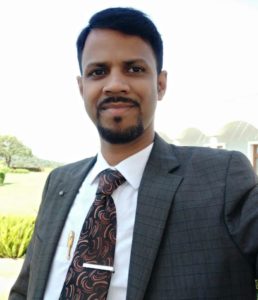AnalyticsBreaking News
SC Adjourns Plea against Sub-Ordinate Legislations on entry of Minorities


Advocate, Silchar
“It is important to remember that the provision about citizenship will be scrutinized all over the world. They are watching what we are doing.”
– Sardar Vallabhbhai Patel, Home Minister of the National Government
spoke on 29 April, 1947 in Constituent Assembly.
The Supreme Court on Monday (14th day of January, 2019) refused immediate intervention in a petition seeking to quash three nos. of subordinate legislations notified by the government, viz.(a) the Passport (Entry into India) Amendment Rules, 2015 notified on 07/09/2015 vide G.S.R. 685(E) (b) The Foreigners (Amendment) Order, 2015 notified on 07/09/2015 vide G.S.R. 686(E), and (c ) SO 4132 issued by the ministry for external affairs on December 23, 2016 which exempted people belonging to the minority communities in Bangladesh and Pakistan — namely Hindus, Sikhs, Buddhists, Jains, Parsis and Christians who were compelled to seek shelter in India because of religious persecution or fear of such a persecution — from the requirement of a passport to enter India. The Rules state that these people should have entered India on or before December 31, 2014.

The Foreigners (Amendment) Order, 2015 grants exemption from provisions of the Foreigners Act, 1946 to the same set of people, as exempted by the Passport (Entry into India) Amendment Rules, 2015. The impugned SO confers upon certain authorities the power vested in the Central government for registration as a citizen of India under Section 5 or for grant of certificate of naturalization under Section 6 of the Citizenship Act, 1955, in respect of Hindus, Sikhs, Buddhists, Jains, Parsis and Christians from Afghanistan, Bangladesh and Pakistan, now residing in the States of Chhattisgarh, Gujarat, Madhya Pradesh, Maharashtra, Rajasthan and Uttar Pradesh and Union territory of Delhi.
On 21/12/2018 a petition filed by the by Guwahati based NGO Nagarikatwa Aain Songsudhan Birodhi Mancha (Forum Against Citizenship Act Amendment Bill) REPRESENTED BY ITS CHAIRMAN, DR. HIREN GOHAIN, former director-general of police Hare Krishna Deka and former journalist Manjit Mahanta has been filed in the Supreme Court of India challenging rules and notifications which regularise the entry and stay in India, of people from six communities which claim to be victims of religious persecution in their own countries. The said petition has been registered on 7th January, 2019 vide W.P.(C)No.20 of 2019.
The said writ petition claims that these sub-ordinate legislations have diluted the meaning of an “illegal migrant”, as defined under Section 2(b) of The
(Contd…P/2)
Citizenship Act, 1955, without first amending this provision. The petition, in fact, claims that the entire concept of distinguishing between citizens and non-citizens on the basis of religion is “communally altered humanitarianism” and goes against secularism. It, therefore, demands striking down of the impugned provisions, and also the constitution of a National Immigration Commission to frame a National Immigration Policy and a National Refugee Policy.

If we trace back the history, in 1947, the country was divided primarily on the basis of religion with no fault of citizens. After partition, India became a Secular State while at the same time the other nations namely Pakistan and later on Bangladesh, chose to become theocratic State. This has led to their organized way of religious persecution for minorities which continued till date. They were/are forced to suffer socially and politically and ultimately they were displaced from their native places. The influx of large number of people has visibly impacted our demographic pattern in several parts of India particularly in North-Eastern region. The then Home Minister Shri Indrajit Gupta also pointed out in Parliament in the year 1997, the change in demographic structure in Assam by stating that Assam had four million illegal migrants. In fact sufferings of these religious minority communities are very different from rest of the minority communities in the world. Understanding the situation, the country had Nehru-Liaquat Pact on 8 April, 1950 but since Pakistan did not honour its commitments, religious persecution of the minorities continued there. The human rights issue of these communities was raised in UNO by India but no concrete result emerged. Keeping these facts in view, the Government had brought amendments in the Citizenship Bill for these six different type of minorities, namely, Hindus, Sikhs, Buddhists, Jains, Parsis and Christians from Afghanistan,Bangladesh and Pakistan.
The Citizenship (Amendment)Bill has been drafted in such a way that it gives reference to the above-mentioned two notification dated 7.9. 2015 only. In fact,the Government by amending the Passport (Entry into India) Rules, 1950 and the Foreigners Order, 1948 through Notification dated 7th September, 2015 have already regularized the entry and stay of persons belonging to six identified minority groups from Afghanistan, Bangladesh and Pakistan so that they can stay in India without attracting the penal provisions of the Foreigners Act, 1946 and the Passport (Entry into India) Act, 1920 and the Rules made there under. In fact, as the notification of the new cutoff date implies that no more migrants would be legally allowed into India after 31 December, 2014.
(Contd…P/3)

The proposed Citizenship Amendment Bill and/or above-mentioned subordinate legislation will not violate the spirit of Article 14 of the Constitution as it
upholds the test of reasonable classification as propounded by a seven Judge Bench of the Supreme Court in the State of West Bengal vrs. Anwar Ali Sarkar case (AIR 1952 SC-75). Differential treatment does not per se constitute violation of Article 14 of the Constitution. In this case, it has been very lucidly explained that any legislation may withstand challenge on the ground of discrimination and violation of Article 14 of the Constitution, in case the classification created by it is founded on an intelligible differentia which distinguishes persons or things that are grouped together from others left out of the group, and that differentia has a rational relation to the object sought to be achieved by the statute in question.
On the other hand, Article 25 of the Constitution will also not be violated because the proposed Amendment Bill does not in anyway affect the right of any person to freely profess, practice and propagate any religion in the Country.
The Citizenship (Amendment) Bill 2016, if passed in Parliament, will imply that Hindus, Sikhs, Buddhists, Jains, Parsis and Christians from Afghanistan, Bangladesh and Pakistan, who arrived in India on or before December 31, 2014 will not be deported or imprisoned for being in India even if found to be living without valid documents.
So, effectively, anybody belonging to any of these six religions from these the three countries can claim Indian citizenship, if they have entered India by December 31, 2014 and have been staying in the country for at least six years, even if illegally.
On 14/01/2019 the Supreme Court pointed out that the Citizenship Amendment Bill is still under consideration of the Parliament and the court should not step in at this stage. The court agreed to keep the petition pending.
The Bench led by Chief Justice of India Ranjan Gogoi pointed out that the petition would become infructuous if the Bill, already passed in the Lok Sabha, gets Rajya Sabha assent.

“Having heard the counsel for the petitioners, we are of the view that this matter should remain pending and be taken up only after the Citizenship Amendment Bill, the consideration of which is now stated to be pending before the Rajya Sabha, reaches its finality.
“The petitioners will be at liberty to mention the matter at the appropriate time,” the bench, also comprising justices Ashok Bhushan and S K Kaul, said.




